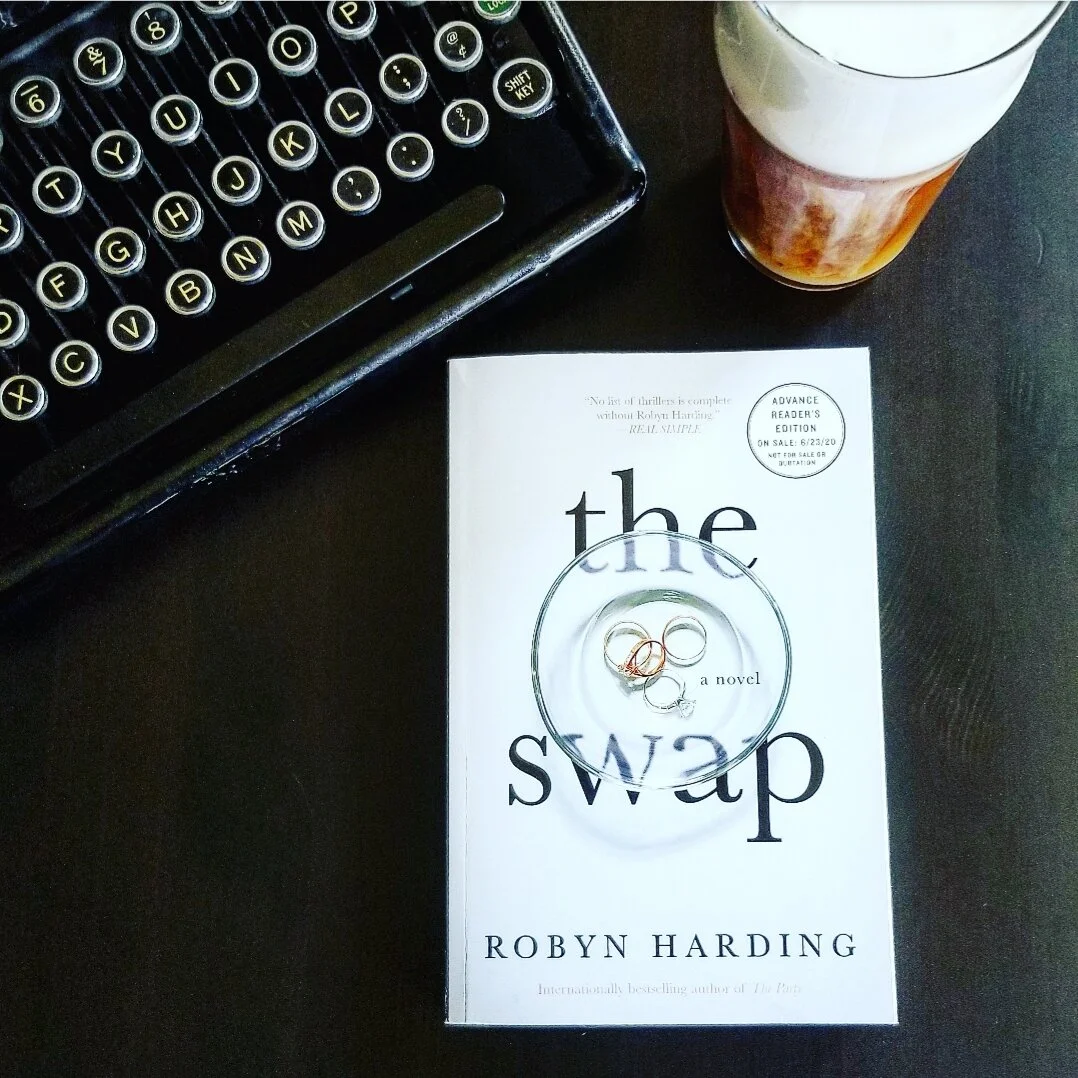REVIEW: "Her Pretty Face" by Robyn Harding
A friend of mine runs a movie review blog called Every Movie Has a Lesson. As you undoubtedly deduced by the blog name, he — a teacher by trade — feels that every movie, no matter how seemingly trivial, imparts some type of life lesson.
Though I haven’t adopted as on-the-nose a name for this blog — opting instead for something that communicates how near and dear alcohol is to my heart — I feel the same about books.
Rarely do I walk away from a book without feeling like I’ve learned something. And Her Pretty Face, Robyn Harding’s second novel, is no exception to this rule.
Interestingly enough, this book has cemented a lesson that I learned when reading Robyn Harding’s first book, The Party.
And that lesson is this:
Teenagers do stupid, risky shit. And this stupid, risky shit can result in one of them losing an eye — In the best case — or fucking dying — In the worst.
And any time losing an eye is the better of two possible scenarios, you know things are pretty fucked up.
The protagonist of this lesson-teaching novel is a suburban stay-at-home mom named Frances.
Although it may appear that Frances has an idyllic life, living in a relatively wealthy community, married to an enviably handsome man and responsible only for the raising of her son, on the inside, her life is far from perfect for a number of reasons.
Her beloved son, Marcus, who has always struggled socially, has found himself even further relegated to the outskirts of his peer group, thanks to a rather disgusting act of retaliation against a girl who was mean to him. Frances has felt the blowback from her son’s behavior as it’s resulted in other mothers at the hoity-toity private school questioning Frances’ skills as a mother and value as a person.
Because, in case you’ve never experienced it yourself, the core group of stay-at-home-moms at any school — particularly a wealthy one — is eerily similar in composition and social power to The Plastics.
Additionally, Frances is chubby — a character trait that I can totally empathize with. And, although she’s not My-600-lb-life level of fat, she’s always felt like this extra layer of padding has kept her from connecting with other mothers and further distinguished her from the super-mom herd — but not in a good way.
We also learn pretty quickly that something happened in Frances’s past that continues to haunt her to this day, further eroding any confidence she may have.
So, when beautiful, put-together and pretty much universally admired Kate turns her attentions towards Frances, it seems almost too good to be true. Unlike Frances, Kate fits comfortably into the mom group. Her son Charles is well- behaved, cooperative and well-balanced — pretty much everything Frances’ son Marcus is not.
Despite the differences between these two boys, Charles and Marcus form a friendship, making the development of a relationship between Frances and Kate if not natural, at least mutually convenient.
But as Frances gets closer to Kate, developing an increasing dependence on, and affinity for, this socially powerful woman, she begins to learn things about her friend that belie the admirable persona.
This leaves Frances wondering. Could everything she believes to be true about Kate be but a collection of lies? And, if they are, is Frances really ready to extricate herself from Kate, socially, and stand on her own in a way she has never been able to before?
From this start, this novel reminded me — in the best kinds of ways — of the wave-making Big Little Lies. As a mom and an educator, I find the natural dynamics of the parent social groups incredibly interesting. Just sitting back in the car-rider-pick-up-line, sipping on a coffee and watching the moms and dads interact like ants in a colony, constantly vying for a new position in the social order, is intriguing to see the least — and, honestly, overwhelming.
The dynamics portrayed in this novel, while catty, were, in my opinion, entirely realistic. And, seeing them from this angle, was engaging if not enjoyable.
But, ultimately, this novel wasn’t just a commentary on how shitty power-moms can be. That was just one layer in a complicated, dare I say onionesque, plot.
Underneath all of the social drama was a tightly-woven thriller that was authentically suspenseful, legitimately surprising and, above all, extremely believable.
One critique I commonly have of contemporary thrillers is that they lack of character development. That was not the case here. Harding invested time and effort into developing her characters, making them lifelike people who we legitimately care about by the book’s end.
Ultimately, it was the combination of this naturally compelling plot and the genuinely engaging characters that made this a novel I couldn’t help but power through.
And, what’s more, even when I wasn’t reading the book, I found myself thinking about it. I found the plot and theme seeping into my everyday life, invading my thoughts and distracting me from my reality.
My reading of this book so pervaded my life that, as I sat in Panera, finishing the novel and apprehensively alternating between sips of hazelnut coffee and nibbles of my gel polish covered nails, I found myself becoming alarmed.
The source of my alarm - realizing that my 8-year-old was scheduled to attend a birthday spend the night that evening and would be under the watchful eye of Amanda, a woman who I befriended largely because our boys had an affinity for each other — God, the scenario sounded familiar.
Too familiar, in fact.
*Spoilers Ahead*
So, seeking reassurance, I did what any normal mom would do. I texted her, pretty much straight out asking if she was a murderer — which, I mean, might not have been the way to go.
As I read her — hopefully — tongue-in-cheek responses, I realized that I was wrong. The lesson that this book in particular, and Robyn Harding’s books in general, have taught me is not what could happen. I knew that long ago for I was once a teen. I moved though that distinctly dangerous epoch in which, despite the fact that I was woefully unaware of the realities of life, I was filled with the misguided belief that I knew all there was to know.
No, what I have come to understand better after reading these books is what my role is now. As a parent.
Despite the fact that I may at times want to invest in the development of an age-progression-stunting serum for my own sons — currently 8 years old and just under 2 — I have to allow them to grow. I have no real choice but to give them space and just hope that they don’t engage in any hijinks that result in the loss of an eye or, worse yet, death.
And, as legitimately scary as this thriller is, that realization is even scarier.
Because this book wasn’t just terrifying, it was also terrifyingly good, I give it 5 out of 5 cocktails.
Do you often walk away from books feeling like you’ve learned an important lesson? Which book do you feel impacted your life and influenced your perspective most? Tell me about it in the comments, below.
* Drink. Read. Repeat. is a participant in the Amazon Services LLC Associates Program, an affiliate advertising program designed to provide a means for sites to earn advertising fees by advertising and linking to Amazon.com. As an associate, we may earn commissions, at no cost to you, from qualifying purchases on Amazon.com












